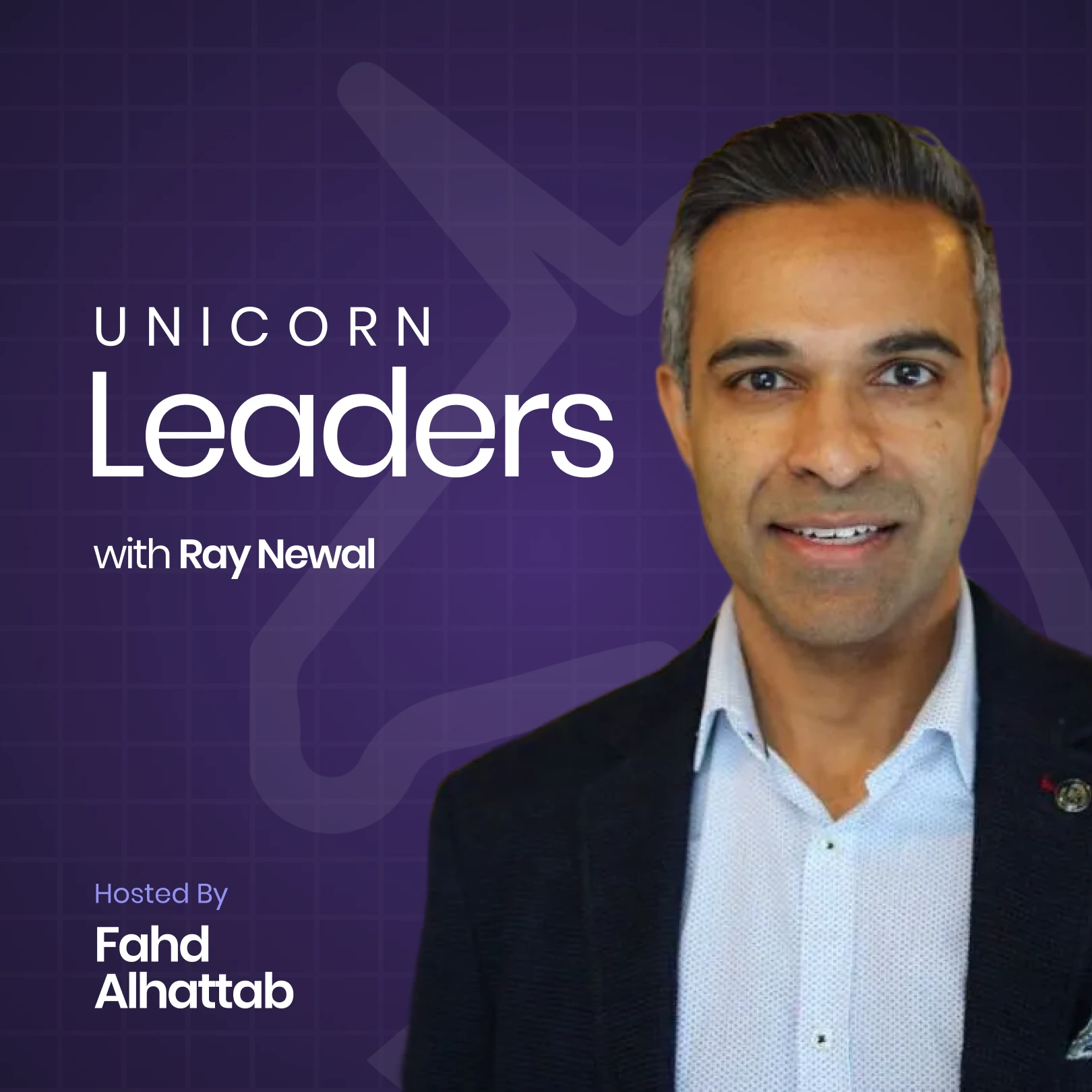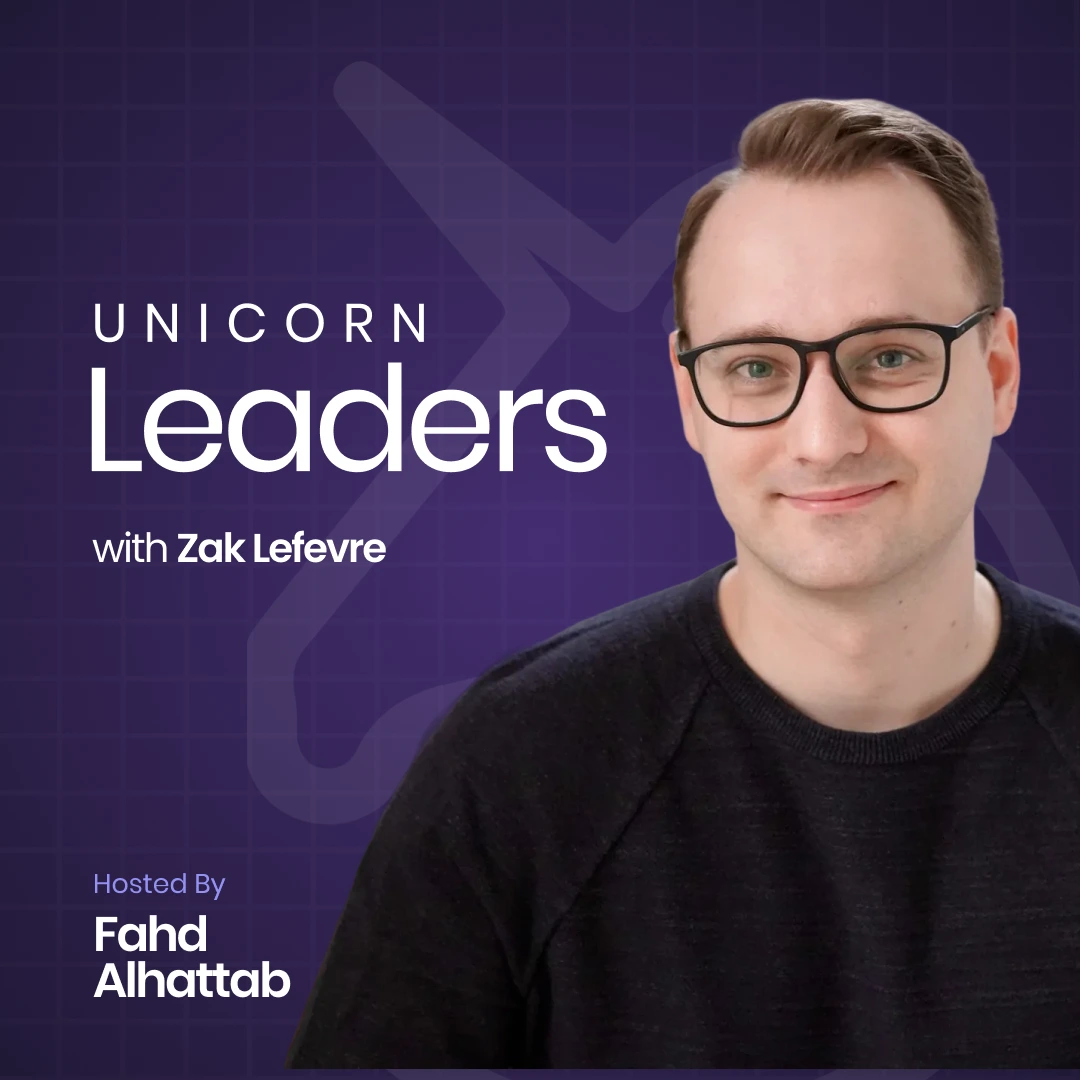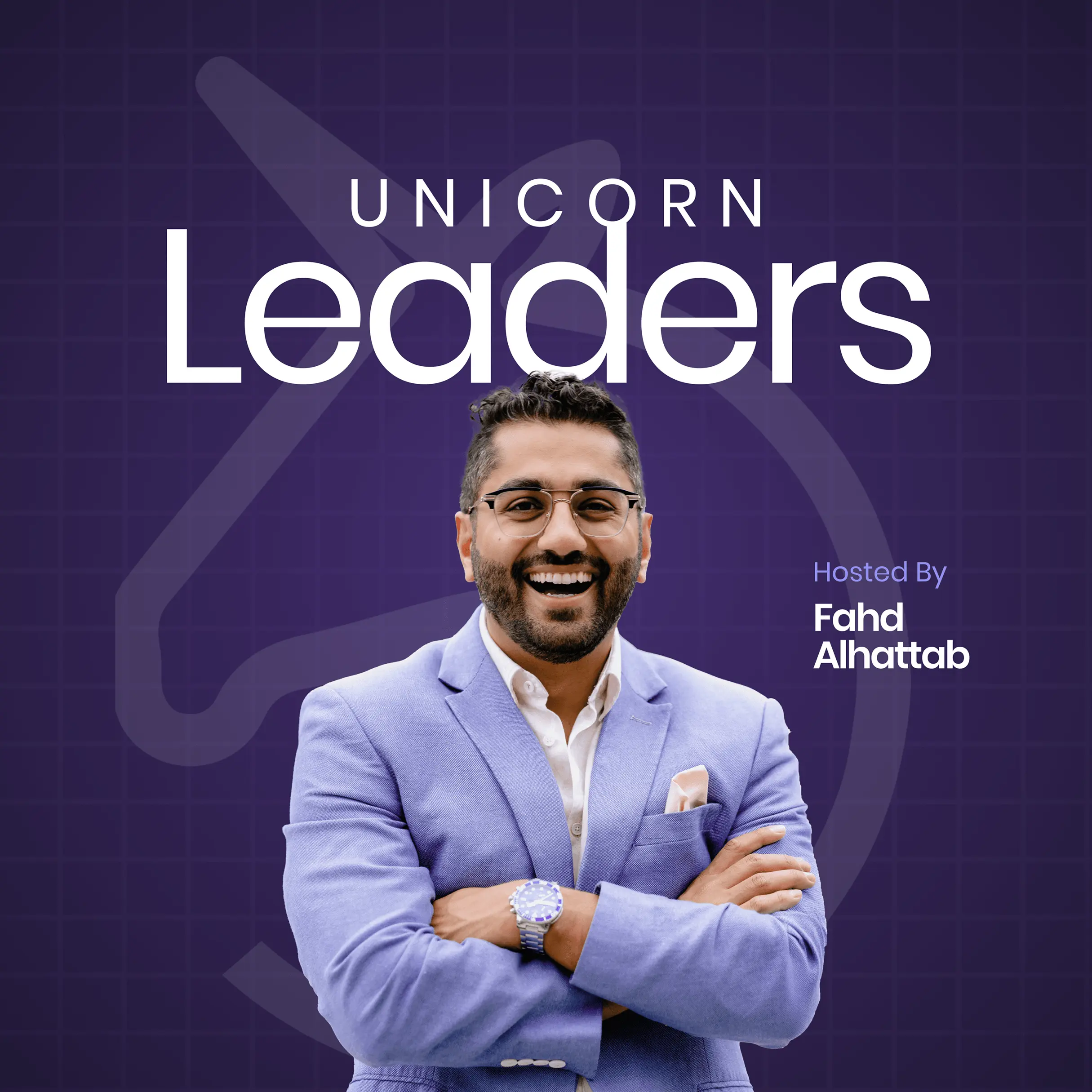About the show
The Unicorn Leaders podcast takes a deep dive into the world of building a billion-dollar company (a unicorn) in every episode. Join us while we explore the leadership and environments that create unicorn startups straight from those with first-hand experience (startup founders, VPs of talent, and more).
The podcast is hosted by Fahd Alhattab, the CEO of Unicorn Labs and a millennial workplace expert who specializes in providing transformative leadership and team dynamics training for high-growth startups. Fahd has been researching what creates high-performing teams over the last five years. Join him as he asks his guests the hard questions to uncover what it means to be a leader in our fast-paced, information-based world.






















































.webp)






